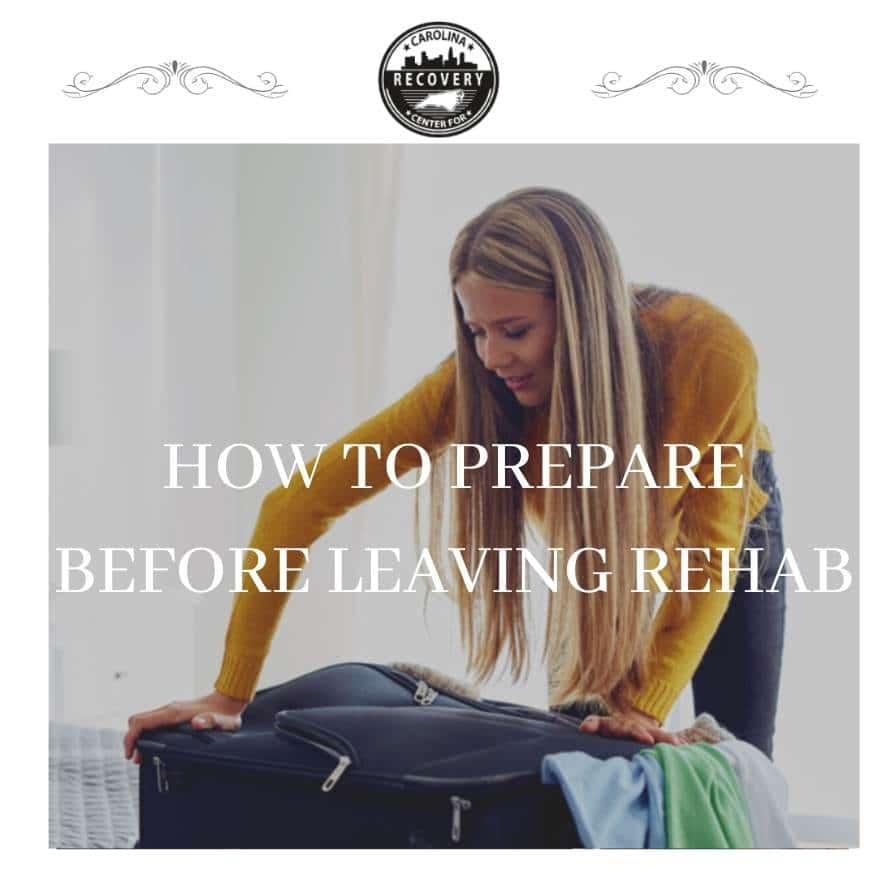How To Prepare Before Leaving Rehab

Medically Verified: 2/1/24
Medical Reviewer
Chief Editor

All of the information on this page has been reviewed and verified by a certified addiction professional.
Making the decision to go to rehab isn’t always easy and many people assume that leaving rehab will be the easy part. However, when you go to an inpatient rehab center, you may spend 30-90 days away from home in a supervised environment. That means it is going to take some time for you to adjust when returning back to real life.
While preparing to leave rehab can be exciting, it can also be nerve-wracking. The actions you take after rehab will make or break your recovery. As a result, it’s important to work with your substance abuse counselor so you are fully prepared before leaving rehab.
Enroll in an Outpatient Aftercare Program
Outpatient rehab programs exist to bridge the gap from residential treatment to real life. Rather than having to live at the treatment facility, you will only attend therapy during your designated hours, usually 2-5 nights a week.
Outpatient programs offer group and individual therapy to people recovering from addiction. Throughout treatment, you will work with your peers and your counselor to stay accountable and meet your treatment goals.
Most inpatient rehab centers in North Carolina have their own outpatient programs for their patients to enroll in after leaving rehab. Others can refer you to outpatient programs near you. Before you leave rehab for good, make sure to ask your substance abuse counselor about whether or not outpatient treatment is right for you.
Locate a Reputable Sober Living Home
Sober living homes are drug and alcohol-free residences that house people in early recovery. They can help provide accountability, structure, and support for people who are leaving an inpatient rehab center. Like outpatient, sober living helps ease the transition out of residential care.
Most sober living homes operate independently, but some are connected to addiction treatment facilities. All will require you to stay sober, take random drug tests, pay rent, and be respectful to your roommates and house manager.
Whether you don’t have a supportive home environment to return to or you are worried that living on your own will lead you to relapse, sober living may be right for you. Several weeks before you leave rehab, make sure you speak with your therapist to finalize your living arrangements. He or she can refer you to trusted sober homes in the area.
Make a Local Meeting Schedule
While you are in treatment you will probably be introduced to 12-Step fellowships and support groups like Alcoholics Anonymous (AA) or Narcotics Anonymous (NA). There are more than 118,000 A.A. groups alone in 180 nations worldwide – so you will be able to find several meetings near you.
When you start working with your counselor to develop an aftercare plan, he or she should provide you with a list of local meetings in the area. Take some time to look over this list, highlight meetings that interest you, and make yourself a meeting schedule to follow.
Having a meeting schedule ready to go will help prepare you for life after rehab. You will have your days planned our and you will know exactly where to go if you need support.
Get Phone Numbers and Resources From Your Rehab Center
Some of the people you meet in rehab will be friends for life. However, you may go in different directions after rehab. Even if you stay in the same area, you’ll need to have a way to contact these friends to get in touch, schedule gatherings, and get their support if needed.
On your last day of rehab be sure you pass around a notebook or piece of paper to gather the phone numbers and contact information of your friends. This way, you can continue the relationships you build in rehab in your early sobriety.
You may also ask your substance abuse counselor for a list of support resources in the area that may include low-cost medical care, counseling, hotlines, support groups, community centers, career resources, and more. This is especially important if you are in a new area or if you have traveled for rehab.
Get Your Resume Ready Before Leaving Rehab
Finding a job may be the last thing you want to think about, however, you’re going to need it to help pay your bills, afford sober living, and keep you busy throughout the day. A job will also provide you with a schedule so that you have something to do and a purpose to go about your day.
Many North Carolina rehab centers provide job support services. A career coach can help you spruce up your resume and apply to nearby jobs that you didn’t know were available.
Don’t wait until after rehab to get your resume ready. If you do, you may find yourself stressed out last minute and scrambling to find the resources you need. Inquire your rehab center about what career placement resources are available to you.
Find Help Today
Leaving rehab can be overwhelming, but if you take these steps to prepare properly, you will be on the road to success. Here at Carolina Center for Recovery, we understand the importance of aftercare planning and recovery maintenance, which is why we won’t let you leave our rehab facility until you are fully prepared to do so.
If you or a loved one are ready to get started on your recovery or you are interested in learning more about our North Carolina addiction treatment programs, pick up the phone and give us a call today.

